
Review of Alt-Finance: How the City of London Bought Democracy by Marlène Benquet and Théo Bourgeron (Pluto Press, 2022)
For years academic literature and broader public debates have largely framed the Brexit referendum as a ‘popular revolt against the elites’. While some emphasised the role of economic factors and others boiled it down to anti-immigration attitudes, most accounts seem to converge around this bottom-up perspective that ordinary people disillusioned with the elites have driven the UK out of the EU. Conversely, apart from a few dissenting voices, the idea that economic elites have been mostly opposed to Brexit has been the prevailing view in the literature. Challenging the over-emphasis on the voting process, Marlène Benquet (University of Paris Dauphine) and Théo Bourgeron (University of Edinburgh) invite us to look more closely at the role played by the economic interests …
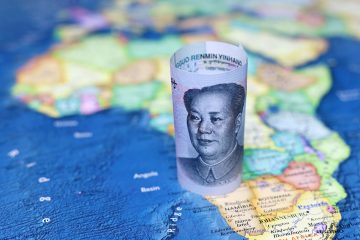
China’s Role in Restructuring Debt in Africa
Africa’s public debt burden has doubled from 2010 to date. Data from the International Debt Statistics Data as of December 2022 shows that African countries owe $ 644855.2 billion (USD). The International Monetary Fund (IMF) and the World Bank consider 22 low-income African countries to be either in debt distress or at high risk of debt distress as of November 2022. Debt distress in this context means a country is experiencing difficulties in servicing its debt. A high debt burden could risk the continent’s economic growth, development, and climate investments. The additional global economic downturn and falling commodity process could compound the issue for countries on the continent. While there is no immediate threat of systemic and financial collapse due …
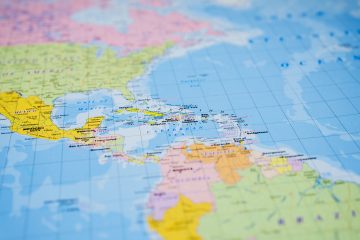
The Biden Administration Must Improve its Foreign Policy Toward Latin America
Historian Joseph S. Tulchin once described U.S.-Latin American relations as a “historical legacy of conflict.” Over the last two years, the Biden administration has neglected regional concerns in Latin America. With a new year ahead, the Biden administration must revaluate its relationship with the region with ample considerations of social geopolitical elements tinted with historic predispositions. Regional concerns cannot continue to be addressed from a preoccupied hardline position. As other nations outside the Western hemisphere strengthen their influence in Latin America, the time to disregard human dignity as imperative to current affairs must end. A U.S. Progressive Foreign Policy While the Biden administration has advocated for a foreign policy stipulated to adhere to international human rights norms, it has failed …
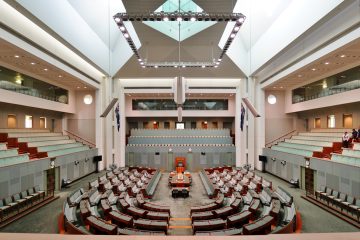
Australia’s Unprecedented Coalition Politics: Unpacking Scott Morrison’s Ministerial Self-Appointments
This summer it transpired that during the pandemic previous Prime Minister (PM) of Australia, Scott Morrison, had secretly appointed himself as minister to five ministries. By the end of his mandated term in 2022, he enjoyed the statutory powers to manage six of the 14 government ministries, often unbeknownst to the already appointed ministers and the public. What makes this an especially untoward governance strategy, is that the Morrison government was a coalition government. More precisely, Morrison’s party, the Liberal party, shared government office with the National party. Two of the five ministries Morrison appointed himself to, were originally assigned to the National party. He seemingly did so for the sole purpose of influencing their governance decisions. The report of …

Brazil is back: Will Lula Manage to Rebuild Brazil’s Environmental Policy?
Lula signalled new winds for Brazilian climate politics in his victory speech after winning the presidential election. In his words: “Brazil is ready to retake its leadership in the fight against the climate crisis, by protecting all its biomass, especially the Amazon rainforest”. During Lula’s first presidential mandate at the beginning of the 2000s, Brazil, and other countries led by progressive leaders across Latin America, expanded mega extractive projects to fund their distributive politics. These projects are responsible for environmental degradation and threats to local people’s health and lives until this day. However, Lula also has also great achievements. Between 2005 and 2012, Brazil registered the lowest illegal deforestation in the Amazon as a result of the implementation of the …

Pro-Innovation and Pro-Ethics? Threading the Needle in UK AI Policy
Throughout the recent political turmoil in Downing Street, the civil service has continued to develop policy on artificial intelligence, including by developing its 2021 National AI Strategy through a more detailed policy paper (titled ‘Establishing a pro-innovation approach to regulating AI’) that gives further guidance about the intended approach. This policy paper is of domestic and international importance, as the new Prime Minister Rishi Sunak looks to capitalise on the UK’s AI potential at a time when governments worldwide grapple with how to regulate the emerging technology. Notably, the tone of the paper, as introduced by then-ministers Nadine Dorres and Kwasi Kwarteng, emphasises a ‘proportionate, light-touch and forward-looking’ attitude that looks to ‘unleash growth and innovation’ in the field. The framing of an …
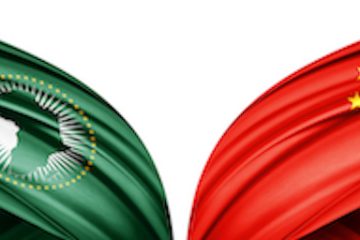
Bridging State Responsibility and Opportunities as African Countries Join in the Digital Silk Road
In 2015 China launched the Digital Silk Road (DSR hereafter). The DSR is an essential part of the One Belt, One Road (BRI) strategy with significant domestic and foreign policy objectives. China has made enormous investments that have allowed it to achieve rapid technological advancement and economic growth. As of 2021, Chinese firms were three of the world’s largest technology companies by revenue. According to the World Intellectual Property Organisation (WIPO), in 2020 China reported 1.5 million patent applications, 2.5 times more than the second leading country, the United States. The DSR is part of China’s plan to spread its technical and proprietary knowledge by building telecommunications, data, and financial infrastructure in countries participating in the BRI. The Nigerian digital …
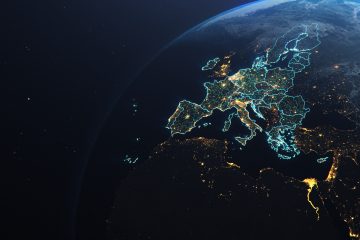
Who governs? When and why governments appoint technocrats?
One of the most critical questions of modern comparative politics is: who governs? The first thing that would come to mind would be party politicians. However, transformations in several European countries’ governmental arena indicate that partisan presence in office, and, more broadly, the general model of party government, characterised by parties’ centrality in representing the needs and demands of citizens, is in decay. Such a decline owes much to the increased government involvement of technocratic personnel – i.e., ministers with no political affiliation. Indeed, while Italy established itself as the promised land of technocracy, currently led by Mario Draghi and by four technocratic prime ministers in the last two decades, technocratic ministers have also entered the last three partisan governments …









